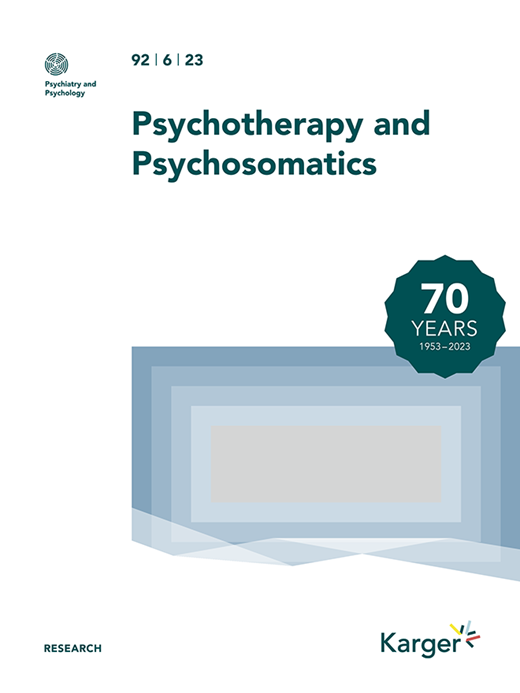急性创伤和强迫症:来自2023年10月7日的证据。
IF 17.4
1区 医学
Q1 PSYCHIATRY
引用次数: 0
摘要
从理论上讲,暴露于创伤会导致强迫症(OCD)的发作和恶化,但直接的经验证据仍然有限。这项研究调查了2023年10月7日在以色列直接受到创伤影响的个体,与没有直接受到影响的对照组相比,是否表现出更高的新发或恶化的强迫症症状。共有132名成年人参加了这项研究,其中66名来自加沙地带的幸存者直接受到了袭击,66名来自以色列其他地区的对照组没有受到直接影响。强迫症和创伤后应激障碍症状的数据在事件发生后大约4-6个月收集。结果显示,直接影响组的强迫症症状明显升高,创伤后应激障碍症状严重程度部分介导了创伤暴露与强迫症症状增加的关系。值得注意的是,在直接受影响的人群中,39%的人符合可能的强迫症的先验标准,24%的人在10月7日之后报告了新发症状,大多数人报告了现有症状的恶化。这些发现提供了第一个直接证据,证明急性创伤可以引发新发和恶化的强迫症症状。与素质-应激模型一致,结果强调了环境应激源在强迫症病因中的作用,并强调了在创伤暴露人群中筛查强迫症的必要性。本文章由计算机程序翻译,如有差异,请以英文原文为准。
Acute Trauma and OCD: Evidence from October 7th, 2023.
Exposure to trauma has been theorized to contribute to the onset and exacerbation of obsessive-compulsive disorder (OCD), yet direct empirical evidence remains limited. This study examined whether individuals directly affected by the trauma of October 7th, 2023, in Israel exhibited higher rates of new-onset or worsening OCD symptoms compared to controls who were not directly affected. A total of 132 adults participated, including 66 survivors from the Gaza envelope who experienced direct exposure to the attacks and 66 matched controls from other areas of Israel who were not directly affected. Data on OCD and PTSD symptoms were collected approximately 4-6 months after the events. Results revealed significantly higher OCD symptoms in the directly affected group and PTSD symptom severity partially mediated the relationship between trauma exposure and increased OCD symptoms. Notably, 39% of individuals in the directly affected group met a priori criteria for probable OCD, 24% reported new-onset symptoms after October 7th, and most others reported worsening of existing symptoms. These findings provide the first direct evidence that acute trauma can trigger new-onset and worsening OCD symptoms. Consistent with the diathesis-stress model, the results underscore the role of environmental stressors in OCD etiology and highlight the need for screening for OCD in trauma-exposed populations.
求助全文
通过发布文献求助,成功后即可免费获取论文全文。
去求助
来源期刊

Psychotherapy and Psychosomatics
医学-精神病学
CiteScore
29.40
自引率
6.10%
发文量
46
期刊介绍:
Psychotherapy and Psychosomatics is a reputable journal that has been published since 1953. Over the years, it has gained recognition for its independence, originality, and methodological rigor. The journal has been at the forefront of research in psychosomatic medicine, psychotherapy research, and psychopharmacology, and has contributed to the development of new lines of research in these areas. It is now ranked among the world's most cited journals in the field.
As the official journal of the International College of Psychosomatic Medicine and the World Federation for Psychotherapy, Psychotherapy and Psychosomatics serves as a platform for discussing current and controversial issues and showcasing innovations in assessment and treatment. It offers a unique forum for cutting-edge thinking at the intersection of medical and behavioral sciences, catering to both practicing clinicians and researchers.
The journal is indexed in various databases and platforms such as PubMed, MEDLINE, Web of Science, Science Citation Index, Social Sciences Citation Index, Science Citation Index Expanded, BIOSIS Previews, Google Scholar, Academic Search, and Health Research Premium Collection, among others.
 求助内容:
求助内容: 应助结果提醒方式:
应助结果提醒方式:


